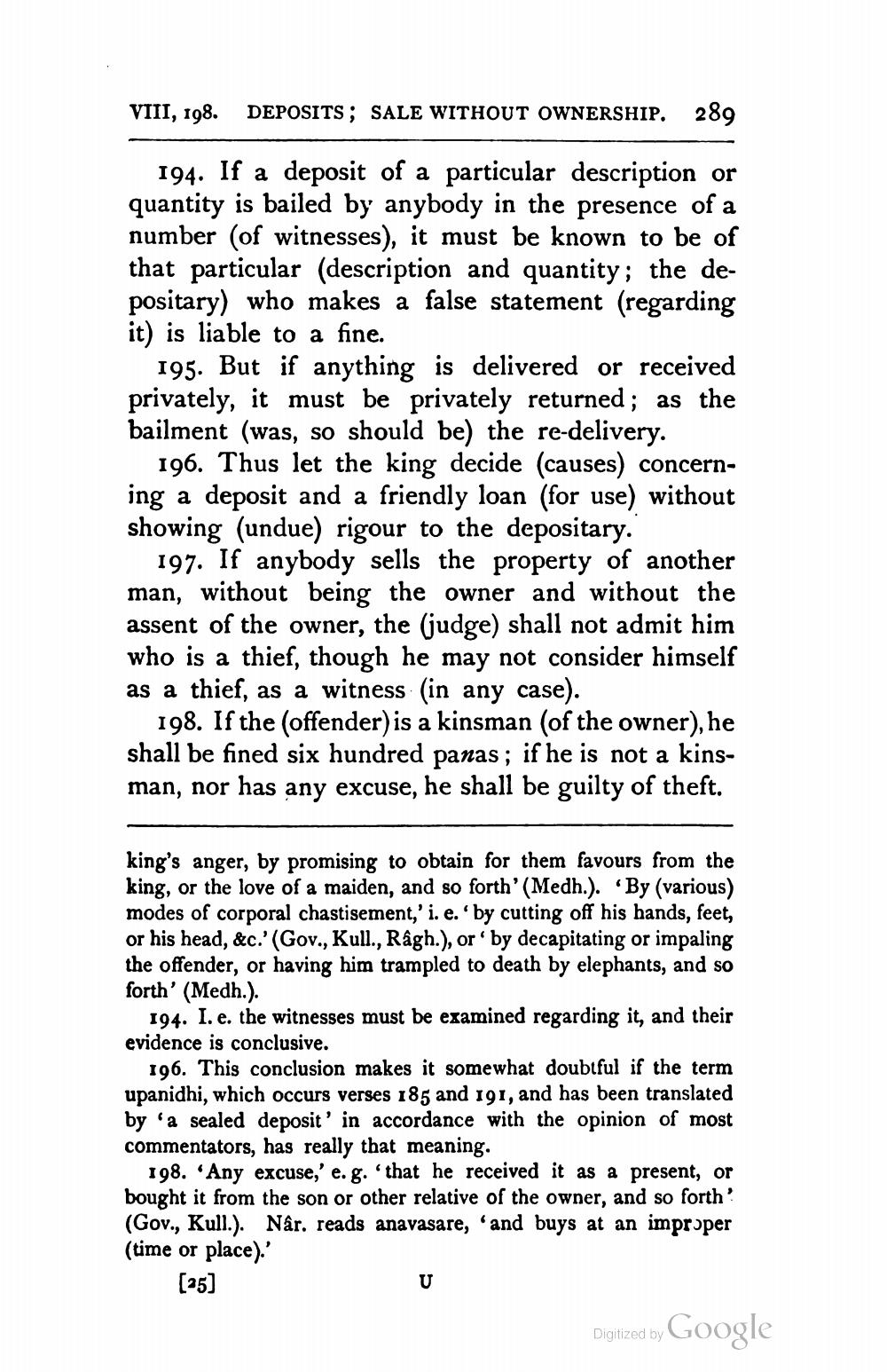________________
VIII, 198. DEPOSITS; SALE WITHOUT OWNERSHIP. 289
194. If a deposit of a particular description or quantity is bailed by anybody in the presence of a number (of witnesses), it must be known to be of that particular (description and quantity; the depositary) who makes a false statement (regarding it) is liable to a fine.
195. But if anything is delivered or received privately, it must be privately returned; as the bailment (was, so should be) the re-delivery.
196. Thus let the king decide (causes) concerning a deposit and a friendly loan (for use) without showing (undue) rigour to the depositary.
197. If anybody sells the property of another man, without being the owner and without the assent of the owner, the (judge) shall not admit him who is a thief, though he may not consider himself as a thief, as a witness (in any case).
198. If the (offender) is a kinsman (of the owner), he shall be fined six hundred panas; if he is not a kinsman, nor has any excuse, he shall be guilty of theft.
king's anger, by promising to obtain for them favours from the king, or the love of a maiden, and so forth'(Medh.). By (various) modes of corporal chastisement,' i. e.' by cutting off his hands, feet, or his head, &c.'(Gov., Kull., Ragh.), or by decapitating or impaling the offender, or having him trampled to death by elephants, and so forth' (Medh.).
194. I. e. the witnesses must be examined regarding it, and their evidence is conclusive.
196. This conclusion makes it somewhat doubtful if the term upanidhi, which occurs verses 185 and 191, and has been translated by a sealed deposit' in accordance with the opinion of most commentators, has really that meaning.
198. Any excuse,' e. g. 'that he received it as a present, or bought it from the son or other relative of the owner, and so forth? (Gov., Kull.). Når. reads anavasare, and buys at an improper (time or place).'
[25]
Digitized by Google




